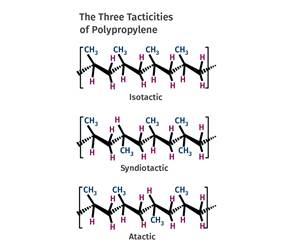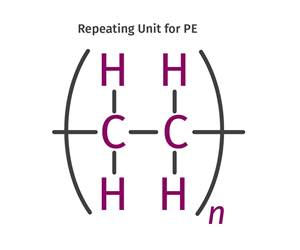Harvey Update: Partial Reopening of Ports and Rail System Underway
Estimated 525 million pounds of ethylene output was lost from August 24-31.
With its 10th update on Tropical Storm Harvey on the last day of August, PetroChemWire (PCW) reported on the latest news in plant operations as well as the status of ports and rail systems. By late evening, PCW’s 11th update indicated some progress in the transport/shipping arena. PCW’s 12th update included word of one facility’s startup. The latest S&P Platts Petrochemical report also weighed in, noting that logistics hinder production in Texas post-Harvey. Among the key highlights:
● An estimated 104 million pounds per day of ethylene production was shuttered, representing about 82% of Texas’ total capacity, 60% of Gulf Coast capacity and 57% of all U.S. capacity. By the evening of Thursday, August 31, an estimated total of about 525 million pounds of ethylene output will have been lost since Thursday, August 24.
● The U.S. Coast Guard allowed the partial reopening of ports along the Texas coast late Wednesday, including those in Corpus Christi, Houston, Galveston and Freeport, all with draft restrictions. By end of day, the Port of Corpus Christi had reopened, which allows seven local refineries to restart operations. The Port of Houston planned to reopen all facilities on Friday, Sept. 1. The upper Houston Ship Channel, from Morgan’s Point inbound to the turning basin, will remain closed due to severe currents and hazards.
An estimated 104 million pounds per day of ethylene production was shuttered, representing about 82% of Texas’ total capacity, 60% of Gulf Coast capacity and 57% of all U.S. capacity.
● Union Pacific continued to suspend rail operations along the Gulf Coast from Brownsville, Texas to Lake Charles, Louisiana. The railroad was beginning to assess tracks inside and west of Houston, and was cleaning its Settegast and Englewood yards in Houston for a return to service. By day’s end, UP reported that it had completed repairs between Houston and Bryan, Texas, and between Houston and Angleton, Texas. Work has been completed to begin switching operations over the next two days in areas south of the company’s Englewood and Settegast rail yards, including Angleton, La Porte and Freeport. Repairs between Houston and San Antonio were starting on Thursday, Aug. 31. UP noted that areas where the company has no road access, such as the Baytown area, they are using helicopters and drones to inspect areas by air. UP also issued additional embargoes for all shipments interchanges at Brownsville, Texas, and for 36 rail stations in the Beaumont/Orange area, which includes Amelia and Port Arthur.
● S&P Platts Petrochemical reported that some trucks were returning to roads as floodwaters receded—this according to a source at a Houston trucking company that moves containerized cargo as well as big bulk items. However, he also said the partial recovery was slow, with ports still shut or only open to small vessels and trains unable to move freely.
● LyondellBasell has declared force majeure on styrene from its 2.86 billion lb/yr unit at Channelview. The olefins unit shut down earlier this week due to Harvey.
● At Formosa’s Point Comfort site, the air separation plant that produces nitrogen and oxygen for the site has restarted along with one gas turbine that is producing steam and electricity. Over 850 empty railcars have been secured at the site and are in the plant to support the restart of the company’s polyolefins units. Rail and truck service to the plant remains suspended.
● ExxonMobil shut down its Mt. Belvieu plastics plant—440 million lb/yr LLDPE and 1.8 billion/lb/yr LDPE.
● Construction at M&G Chemical’s 2.4 billion lb/yr PET plant in Corpus Christi remains suspended.
● PCW reports that one PET supplier has proposed a 7¢/lb increase, effective Sept. 1 due to disruptions of feedstock deliveries from Harvey, including MEG. Other suppliers are expected to take similar actions.
● Dow continued increasing operating rates at its Freeport site—its largest integrated ethylene/PE plant.
● OxyVinyls has declared force majeure on PVC.
S&P Platts Petrochemical reported that OxyVinyls plans to increase domestic PVC prices by 5¢.lb, effective Oct. 1 for customers in the U.S. and Canada.
● Friday, Sept. 1, Equistar (wholly-owned subsidiary of LyondellBasell) began restarting plants at its Corpus Christi site, including the olefins unit—with a 2.5 billion lb/yr ethylene capacity.
Related Content
Fundamentals of Polyethylene – Part 5: Metallocenes
How the development of new catalysts—notably metallocenes—paved the way for the development of material grades never before possible.
Read MoreThe Fundamentals of Polyethylene – Part 2: Density and Molecular Weight
PE properties can be adjusted either by changing the molecular weight or by altering the density. While this increases the possible combinations of properties, it also requires that the specification for the material be precise.
Read MoreThe Fundamentals of Polyethylene – Part 1: The Basics
You would think we’d know all there is to know about a material that was commercialized 80 years ago. Not so for polyethylene. Let’s start by brushing up on the basics.
Read MoreCommodity Resin Prices Flat to Lower
Major price correction looms for PP, and lower prices are projected for PE, PS, PVC and PET.
Read MoreRead Next
People 4.0 – How to Get Buy-In from Your Staff for Industry 4.0 Systems
Implementing a production monitoring system as the foundation of a ‘smart factory’ is about integrating people with new technology as much as it is about integrating machines and computers. Here are tips from a company that has gone through the process.
Read MoreMaking the Circular Economy a Reality
Driven by brand owner demands and new worldwide legislation, the entire supply chain is working toward the shift to circularity, with some evidence the circular economy has already begun.
Read More
























